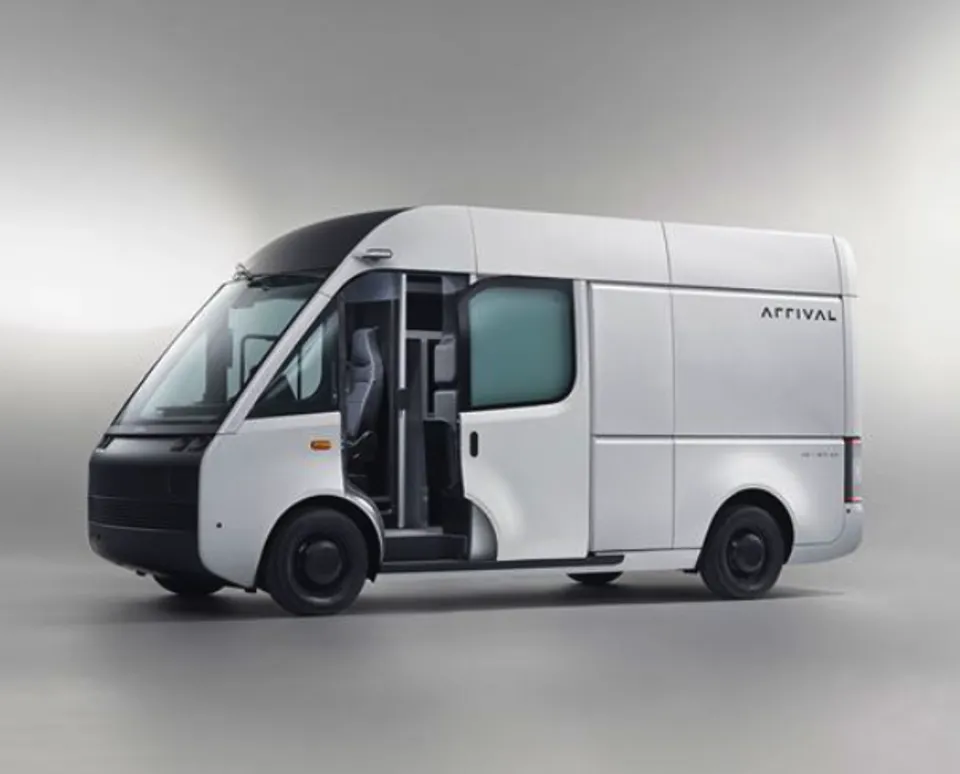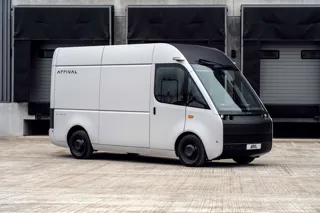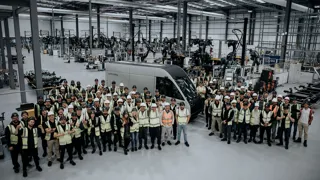Arrival is abandoning plans to build its new electric van in the UK and shifting production to the US.
The start-up confirmed its plans will have a “sizeable” impact on its UK workforce. The latest job cuts come after Arrival shed 800 staff members in July, in order to kickstart the production of the new electric van.
A statement issued by Arrival said: “Scaling production in the Bicester microfactory requires significant further investment in hard tooling and working capital and the Company has determined that the benefits of such an investment would be best directed to the US market.”
Logistics giant UPS ordered 10,000 purpose-built electric vehicles from Arrival in an order worth “hundreds of millions of Euros” as part of its global project to transition to a zero emissions fleet. Delivery of the vehicles was originally expected to start in 2020, but none have been supplied to date.
A small fleet of Arrival vans were produced, in September, for testing, validation and quality control, rather than being sold to customers.
Arrival confirmed that it will continue to produce a small number of vans in Bicester to optimize microfactory processes and support trials with customers.
The major factors in the Company’s decision to shift focus to developing its US business included the tax credit recently announced as part of the Inflation Reduction Act - expected to offer between $7,500 to $40,000 for commercial vehicles, the large addressable market size, and substantially better margins.
Arrival’s decision to scale down its UK business follows the news that BMW Group will produce the next electric Mini in China rather than Oxford. UK battery start-up Britishvolt is also having financial struggles and is reportedly searching for a buyer.
Lorna McAtear, fleet manager at National Grid, said: “The lessons we learn from this are that we need to move quicker, whilst the Government has been supporting businesses and has previously announced tax incentives in part of its levelling up and growth plans, these need to be accelerated. It has also announced the Rapid charge fund and many other incentives and programmes, but all of these need to be delivered now, bodies need to be put in place to make this change happen.
“If we can bring down the cost of manufacturing in the UK, cut out some of the red tape needed to set-up new businesses, this in turn would create jobs and bring tax in via another route and indirectly bring down the upfront cost of the goods produced, whether that is batteries, vehicles or other components.
“Quite simply we need to do more and with speed to keep companies like Arrival and Britishvolt in the UK.”
Arrival plans to raise capital to fund the commercialisation of its vehicle programs in the US and is exploring all funding and strategic opportunities needed to bring the vans designed for the US into production at the company’s second microfactory in Charlotte, North Carolina.






















Login to comment
Comments
No comments have been made yet.